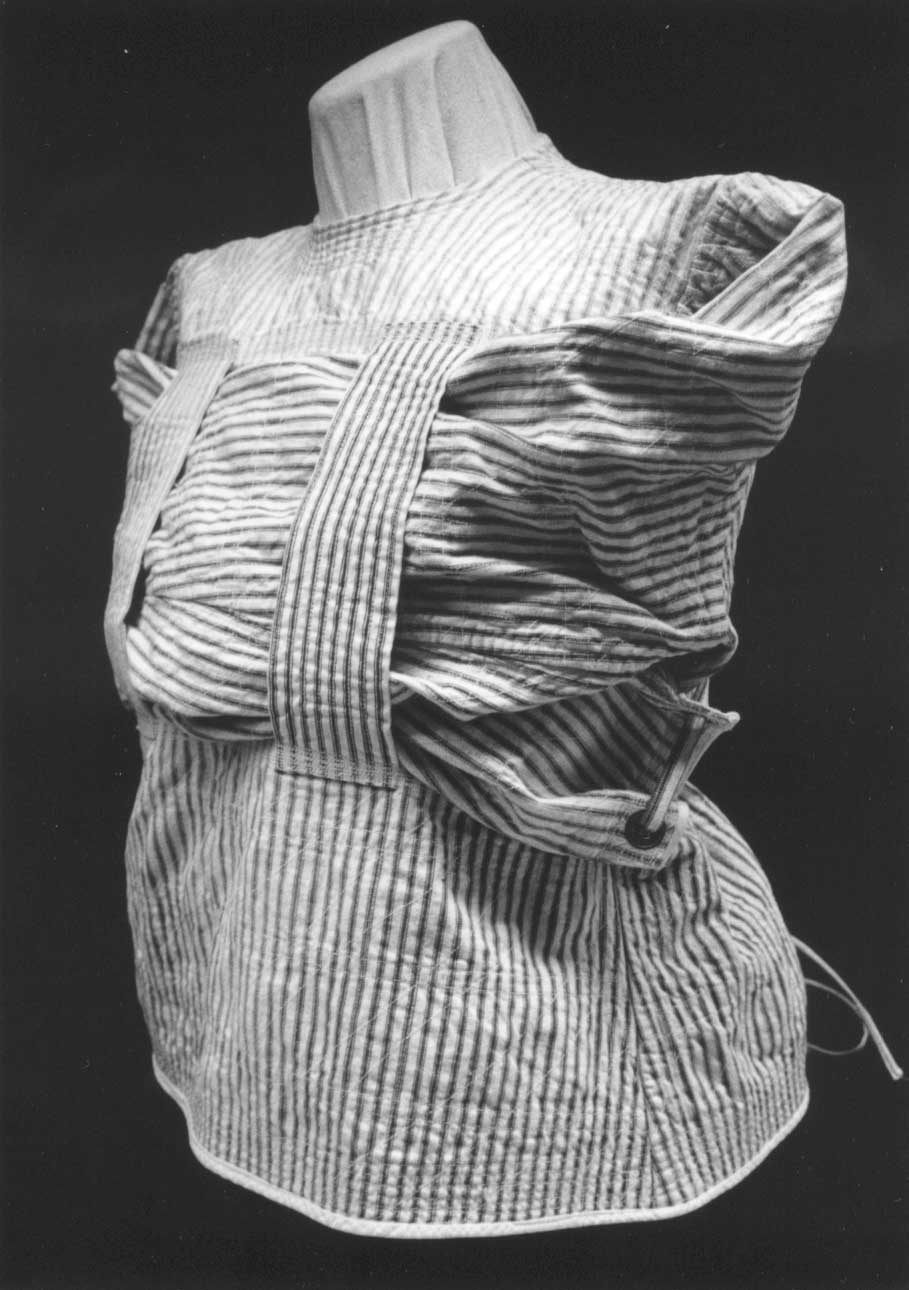During our lecture today, we spent a long time discussing the paper I wrote about yesterday. It was a great discussion, led by an instructor who's obviously used this paper to teach his points for years. I'll see if I can recap a few of the different views I now have about the paper.
1) (This analogy was given by the instructor) If you were to walk into a neurologist's office and complain of crushing, throbbing unilateral headaches accompanied by photophobia and phonophobia, and you were to be admitted to a hospital for workup, at the end of which they found nothing wrong with you, and you had no headaches in the hospital (and indeed, never had headaches), wouldn't their diagnosis still be migraine? And if they found you out to be lying in the first place, wouldn't their diagnosis be malingering? So, if you come to a psych ward and lie about your symptoms to get in, then have no more symptoms inside, you are actually technically meet a diagnosis of malingering. Therefore, instead of "sanity versus insanity", what we're actually having a tough time diagnosing is "psychosis versus malingering", which apparently is true. It's pretty easy to fake psychiatric symptoms (Oh, I'm hearing the voices now!) and then when you get what you want, not hear them anymore. I worked on a "forensic unit" in a psych hospital, which accepted patients from the local jail. It was amazing how many of them heard voices in jail, but not in the hospital, at least not until the night before they were to be discharged.
2) The study really isn't very rigorously scientific. It is, however, a fascinating social experiment, which I think still renders it valid. It also gives us fascinating insights into the treatment of patients within a psych hospital, which were some of the most appalling points of the paper.
3) Today, you would not likely be admitted just for saying "I hear voices." 35 years ago, the diagnostic criteria for schizophrenia were much broader. I'm still not sure why that symptom alone was enough to get all these people admitted--a patient needs to be unable to take care of themselves, or decompensating rapidly, or a danger to self or others usually to be admitted like that. Maybe that's a difference with time? I'm not sure.
4) The author's claim that the pseudopatients acted "normal" in the psych ward wasn't entirely true. They never told the doctors they'd lied, they never told anyone they were in an experiment, etc. As far as the doctors and staff knew, these patients had honestly heard voices (eg, exhibited psychotic symptoms) and were currently asymptomatic. The doctors weren't given all the information, and certainly psychotic patients can hear voices one day and not the next.
5) Finally, the author's conclusion was essentially that the category of insanity is bogus because we can't reliably tell it apart from sanity (although he really meant we can't tell psychotic from non-psychotic). Is hypertension a bogus diagnosis, even though you might get a reading that is 135/85 and some books say "normal" and others say "pre-hypertension" and others say "hypertension", and some authorities urge you to treat it and others say don't worry? (I exaggerate in this example, but you get the point.) I personally think, and thought yesterday, that he's throwing the baby out with the bathwater, so to speak. Perhaps it's easier to recognize abnormal, maladaptive behavior in the "sane" world than vice versa, but this is the world most of us live in, where such behavior gets us in trouble.
The important take home points of the article, according to the instructor (and I touched on this briefly yesterday, but not in a very organized fashion):
1) It's very important to have reliable categories of diagnostic criteria that lead to valid predictors of outcome (which was the point of the lecture).
2) The second experiment, where the doctors rated whom they believed to be pseudopatients, likely shows either a high rate of malingering patients or a high rate of very high-functioning patients (or both) who weren't particularly bothered by their symptoms, although that begs the question why were they in a psych hospital.
3) The way patients were treated by staff was a valid observation by the pseudopatients. They were able to take detailed notes without anyone caring, because they were believed to be crazy. They were able to document abuse by staff of some of the patients, when said abuse would stop when physicians entered the unit, because they were not "credible witnesses"--after all, who'd believe a psych patient? They also experienced the depersonalization that happens on a psych ward--there's little to do but watch TV and wait for meals, you're not in your own clothes, you can't go to the bathroom in peace because there's often no door, you can't have your own belongings with you, and your room and personal items may be searched at any time. Also, the segregation of staff and patients holds true today, for sure. Most of us get a little prickle of fear the first time we walk into a locked psych ward. After all, if we lock them in, these guys must be dangerous! But how, then, do we strike a balance between keeping the patients safe (and keeping those few patients who are dangerous safe) and allowing personal freedom and rights?
It may sound like a non sequitur, but I'd like to conclude with an observation I made in China in a locked psych ward. The air was fresh, because small windows were open to allow air circulation. I'm not sure if the building had central air conditioning, as the majority of buildings in Beijing did not. It was just so refreshing to enter various hospitals and find open windows allowing in fresh air. In America, I doubt there's more than a handful of psych hospitals that have windows which open. As a result, the air quality on most psych wards is ridiculously stale--rather like the jail I worked in last year on OB. The air in this Beijing psych ward was fresh (or as fresh as air in Beijing ever is!) Perhaps one small difference we could make for our patients is a little fresh air. After all, they're not inmates (usually), they're just people with problems that they wear on the outside where everyone can see them, as opposed to inside.








